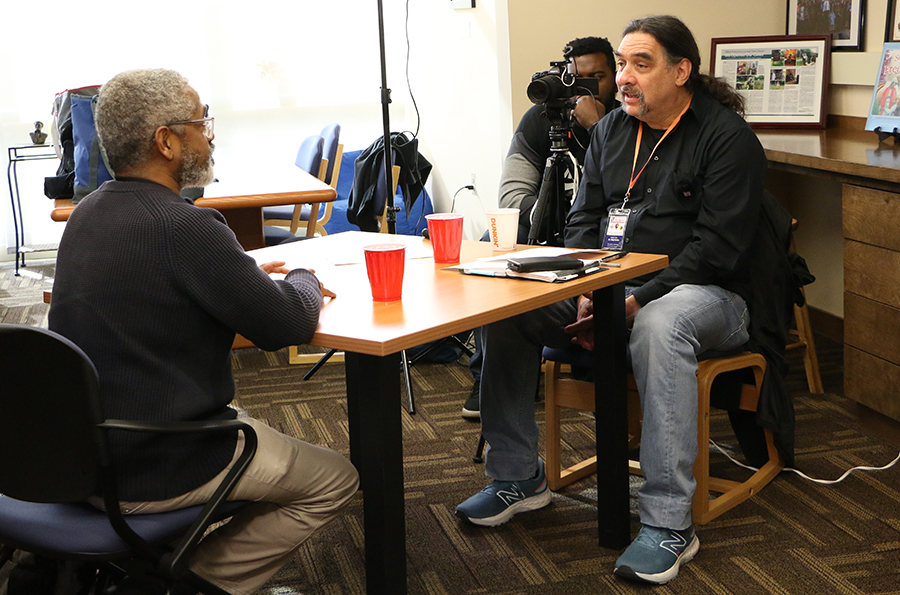Sharing Underground Railroad’s oral histories

Anthony Cohen, left, a descendent of freedom seeker Patrick Sneed, recounts a family history to Paul Ortiz.
The Underground Railroad, which helped people escape slavery to freedom, necessarily operated in secrecy until the end of the Civil War. Now a grant from the National Park Service will support the Samuel Proctor Oral History Program at the University of Florida in highlighting the history of this pivotal social movement.
The $350,000 grant through the U.S. Department of the Interior will allow the program in the College of Liberal Arts and Sciences to gather, preserve, transcribe and promote digital video and audio recordings for use in museums, K-12 classrooms and documentaries.
The Network to Freedom Underground Railroad Oral History Project is a collaborative research project designed to shed light on one of the most important and least-understood social movements in American history.
At great risk to their lives, antislavery abolitionists and their allies painstakingly — and secretly — built the Underground Railroad station by station from the Eastern Shore of Maryland to the Pacific Ocean. Conductors of the Underground Railroad, including most famously Harriet Tubman, developed a network connecting Baltimore, Florida, Mexico, Canada, the Bahamas and many other locations.
“Conductors and freedom seekers on the Underground Railroad struggled against the power of Congress, the Supreme Court, and the executive branch for generations and in doing so left an unrivaled record of democratic striving and intersectional coalition building uniting African American, white, and Hispanic antislavery activists against tyranny,” said Paul Ortiz, director of the Samuel Proctor Oral History Program. “This is an incredible opportunity for University of Florida undergraduates, graduate students, and staff to learn the legacies of the most important grassroots democratic institution in American history.”
